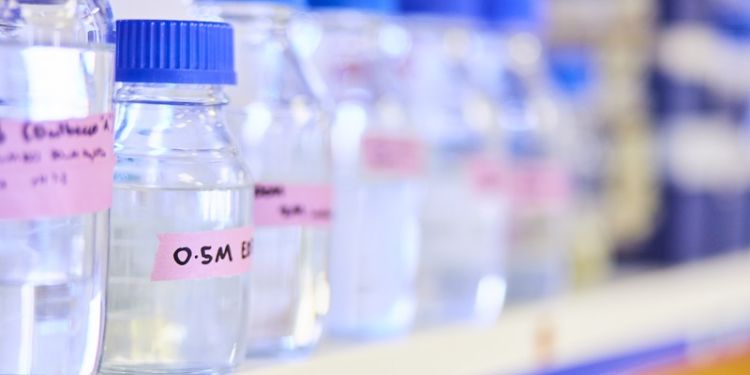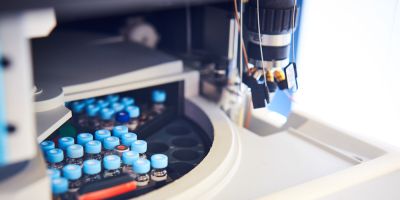School of Chemistry delivers world-leading research

The Research Excellence Framework 2021 results have recognised that 99% of research outputs submitted across the School of Chemistry are rated as either "world-leading" or "internationally excellent".
The Research Excellence Framework (REF) is the system for assessing the quality and impact of research in UK higher education institutions along with the environment that supports this research.
The REF 2021 results show that our highly interdisciplinary research is competitive on the world stage and is achieving real societal benefit in a range of important fields, spanning areas across chemical biology, environment, materials and process research.
View the University of Leeds REF 2021 results for all units of assessment.
Researchers in the School of Chemistry undertake a significant amount of genuinely world-leading research at the University. The REF 2021 results reaffirm the understanding that our researchers, along with their collaborators, are significantly expanding the frontiers of knowledge and achieving a real-world impact. Our interdisciplinary research strengths in the globally important areas of atmospheric chemistry, chemical biology and medicinal chemistry, materials and process research, are not only producing world-class outputs in terms of communicating new knowledge and advances, but are also making discoveries that are improving lives.
Strong links with, and investment in, University and national institutes (some of which have been fostered since the REF submission), such as the Astbury Centre for Structural Molecular Biology, the Institute of Process Research and Development, the Bragg Centre for Materials Research, the Priestley International Centre for Climate, the Diamond Light Source, and the Rosalind Franklin Institute, will ensure that we remain at the forefront of discovery and development in evolving priority research areas.
Researchers in the School collaborate with a wide range of both academic and industrial external partners to translate their research into real world solutions in areas such as medicines discovery, climate change, new materials, and chemical manufacture. Our research is having impact in industry (eg autonomous reaction optimisation technologies implemented within three global pharmaceutical companies), in medicines discovery (eg high-throughput screening of a library of 500,000 compounds driving innovation in drug discovery), and is addressing solutions towards NET zero (eg C-Capture, a spinout company exploiting novel low-energy CO2 capture developed at Leeds by Chris Rayner and Keracol, a spin-out company developing environmentally sustainable cosmetics and user products).
The REF 2021 results are testament to the School’s ability to attract world-class talent and also how it fosters an environment that supports these researchers and their research ambitions. For example, during the REF assessment period the School appointed six new University Academic Fellows (UAFs) who are leading interdisciplinary research in a range of fields and who underline the vibrant research culture within the Department (three of these have landed prestigious external fellowships).
The School hosts a number of major international research programmes (eg ‘Structures and Probes of Intrinsically Disordered Regions’ (SPIDR), a £5.4 million BBSRC-funded programme set to identify new techniques for investigating and manipulating the chemical building blocks of life, and ‘Flow-Xl: a New UK Facility for Analysis of Crystallisation in Flow Systems’, an EPSRC-funded national facility for analysis and crystallization in flow systems.
Recently acquired equipment for research in the School includes two Bruker 500MHz NMR systems, a Nova NaonSEM scanning electron microscope, a Bruker MaXis Impact mass spectrometer with LC-MS and LC-MS/MS capabilities, the Highly Instrumented Reactor for Atmospheric Chemistry (HIRAC) facility, and pilot-scale chemical reactors (located in the Institute for Process Research and Development- iPRD).




